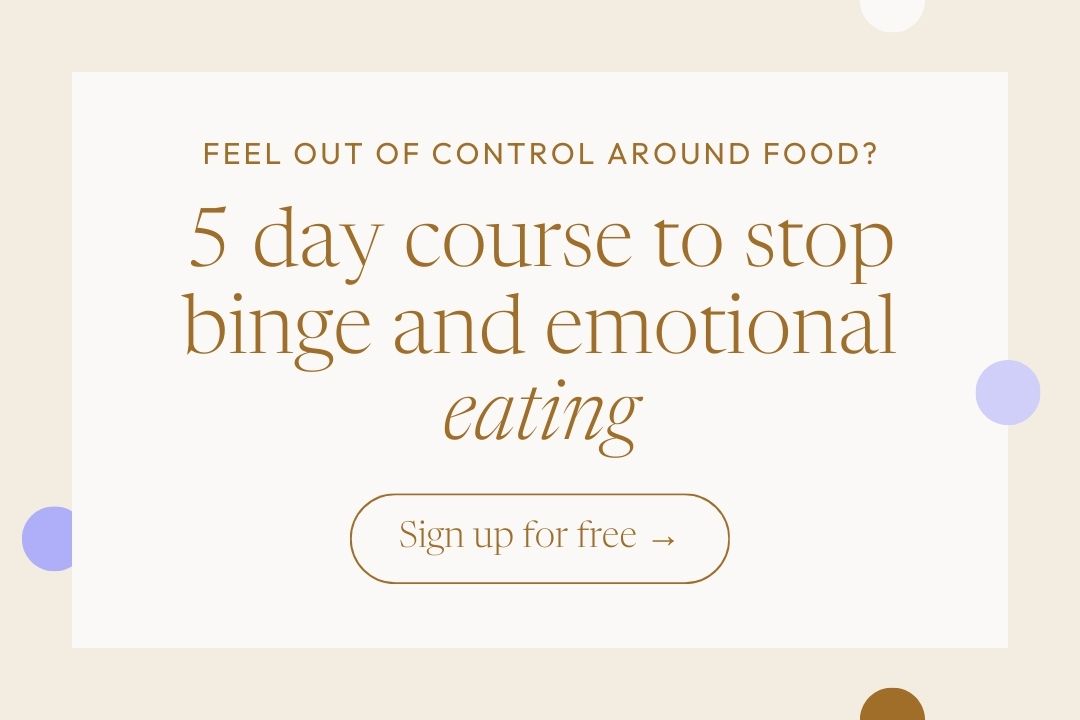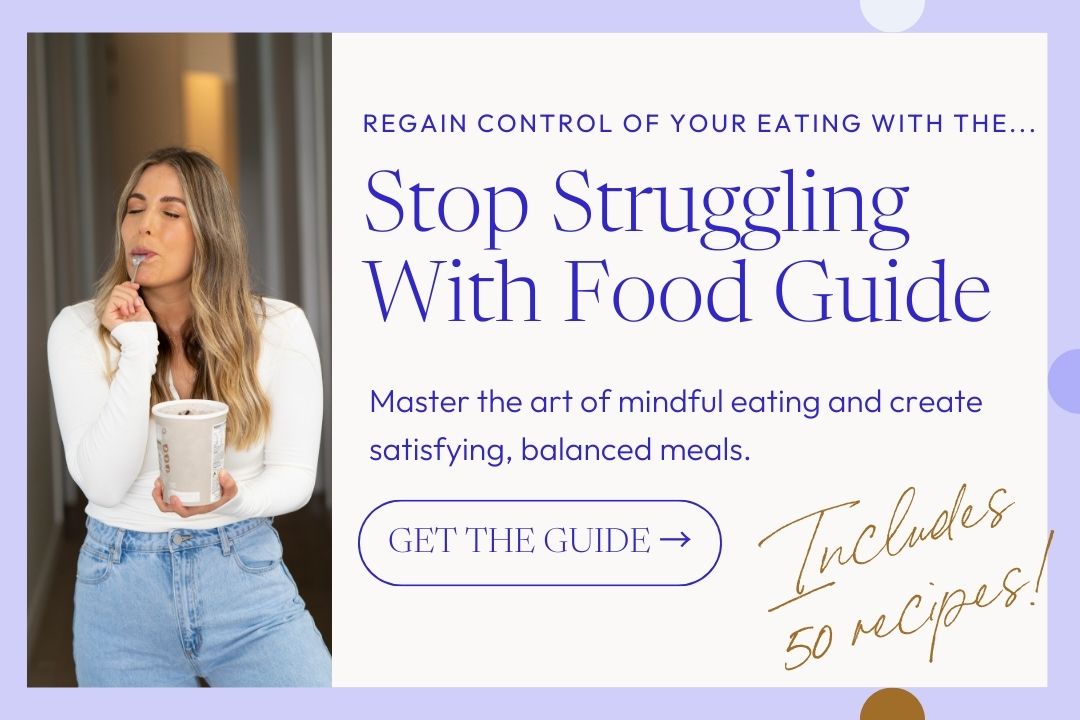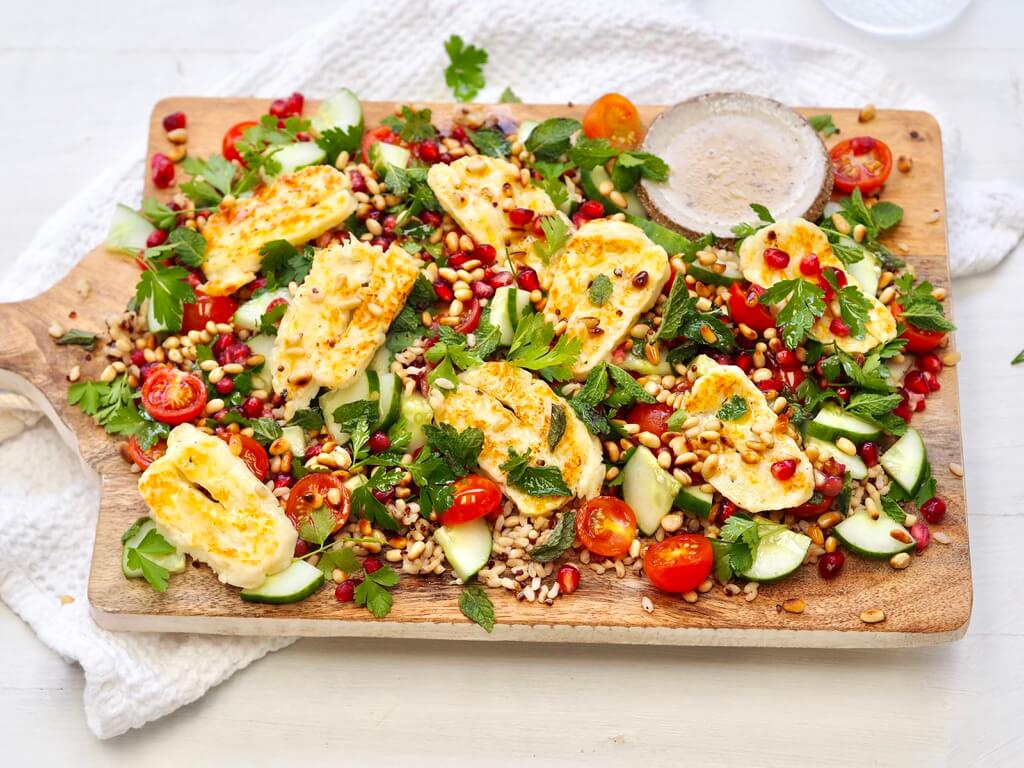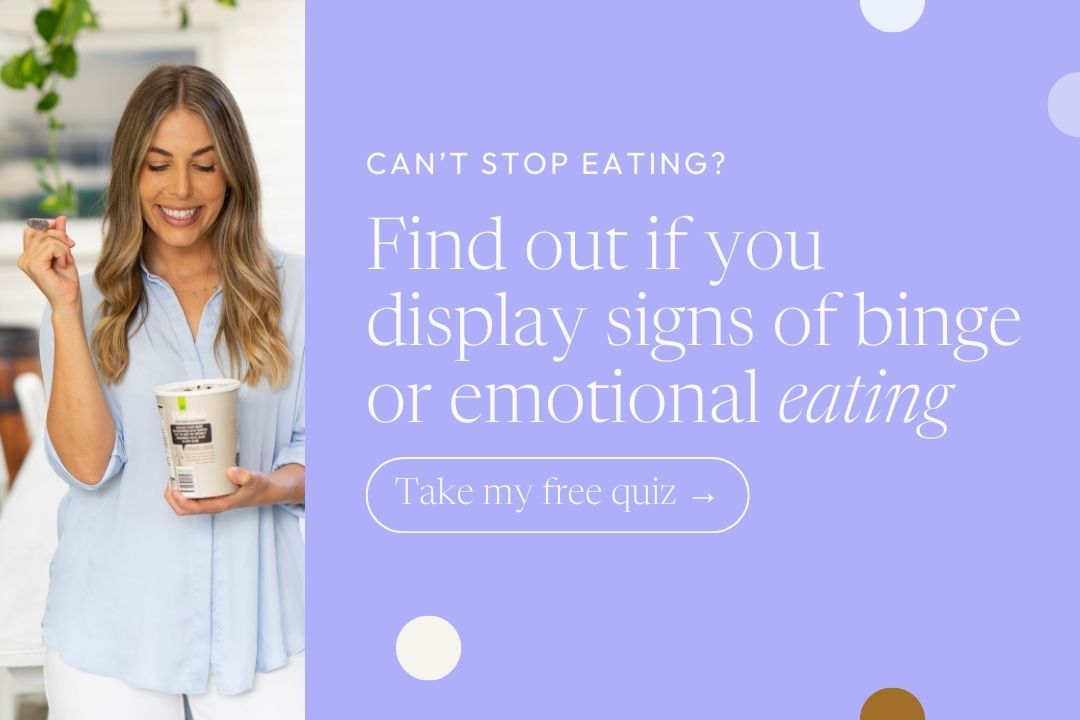During the silly season, healthy eating can get challenging. It’s easy to focus on how to avoid holiday weight gain instead of enjoying this special time of the year with your loved ones. Even just adopting one of these 8 habits can help you feel healthier and happier!
It doesn’t take long before the non-stop eating and drinking at the Christmas parties and BBQs begins to feel overwhelming… and the thoughts about how to avoid holiday weight gain this season are starting to creep in.
It’s cruel really when you think about it. At exactly the same time you know you’re meant to relax around food – festive season – the food guilt and weight worries turn up like unannounced in-laws.
Let’s not let this happen this year.
How to avoid holiday weight gain
Life is meant to be enjoyed, so instead of focusing on restriction or what you can do less, how about trying to focus on what you can do more?
If you’re struggling to feel in control around food and want to avoid gaining weight this holiday season, here are 8 practical healthy habits to adopt:
1. Avoid under eating or skipping meals (particularly on the day of a party)
It can be tempting to skip meals to ‘balance it all out’ – particularly when you have another party to go to that night.
But skipping meals during the day is dangerous because it can cause you to arrive at a party ravenous – and that’s when you will eat anything and everything in sight.
Under eating during the day can also make you hangry (hungry + angry) – Not ideal when you’re meant to be having fun and socialising…
Note: If you’re overeating regularly and often, you might benefit from my FREE 5-day course to stop binge and emotional eating. I teach you how to eat without feeling guilty and all the tricks and tips that helped me to skip the cravings and feel in control around food. The course will be delivered via email straight into your inbox.

2. Focus on getting more veggies (not fewer calories)
Diets suck. Going on a holiday diet sucks even more.
Instead of ruining your meal by worrying about christmas weight and trying to eat less or fewer calories, focus on eating more vegetables.
If you’re hungry for breakfast, have some eggs, cherry tomatoes and sautéed mushrooms. Opt for a hearty salad for lunch and fruit between meals. Pick a dinner with protein, good fats and lots of vegetables.
Naturally, you’ll eat less without realising and won’t need to risk becoming too ravenous and overeating.
By the way, if you haven’t heard about the milkshake experiment yet, you should check out this podcast episode.
It’s a 2011 study, where psychologist Alia Crum got volunteers to drink a ‘healthy’ milkshake and an ‘unhealthy’ milkshake… the results will amaze you. I’ll explain how your brain tricks your stomach and why our thoughts around food – ‘good’ foods and ‘bad’ foods – impacts how we feel after eating. Click here to tune in.
3. Eat when you’re hungry and respond accordingly
Don’t just eat because you think you should.
Sometimes when you have a big meal the night before, you’re less hungry in the morning. Don’t ignore this hunger response and eat your ‘normal’ breakfast. If all you need to feel satiated is a coffee with milk and a banana, then great.
Simply wait until you get hungry again and then respond.
There is a difference between under-eating (avoiding food, feeling hungry, trying to be ‘good’) and listening to your hunger (don’t feel hungry, happy to wait).

4. Change how you catch up
Instead of meeting your pals for brunch next week, how about a walk along the water?
Can you swap that long lunch for breakfast so you’ll skip the cocktails and wine?
If the plan is to catch up over cocktails – can suggest a wine bar instead?
Can you invite everyone to your house for a healthy cook-up? Not only will you feel better for it, but you’ll also save money.

5. Prioritise sleep
Consistently burning the candle from both ends will make you tired, likely leading to overeating. What I am saying is: Give yourself permission to sleep in!
It’s easy to overeat when you’re tired (many 3pm sugar cravings are caused by being tired)! When you’re overtired, your body craves energy often in the form of sugar and carbohydrates (think lollies, treats, bread).
If you get to bed late one night, make sure you give yourself permission to sleep in the next morning – or make sure to get to sleep earlier the night before.
6. Drink more water
Let’s be honest, a lot of alcohol is being served during the silly season. With all the drinking, it’s easy to get dehydrated, which can lead to mindless grazing.
Try this: Have a big glass of water with every meal. I place a large jug of water on the table for dinner every night.
If you don’t have a nice drink water bottle, treat yourself to a reusable design you really like. It’s a healthy habit to adopt.
Hint: Once you start drinking more water, you’ll become thirstier so it will be easier to maintain.
You might like this podcast episode: Do you REALLY need 2L of water a day? Wellness or Wankery?
7. Move more
Find small ways to move more.
Next time you plan to catch up with a friend (or even a colleague) suggest going for a walk together instead. Or how about getting off the earlier train or bus stop and walking instead?
Getting into a habit of walking can impact how you feel emotionally and in your body. Even 5 minutes extra can make a difference. It definitely helps with shutting off the thoughts about how to avoid holiday weight gain. And the guilt after eating.
Oh, and walking also helps with anxiety. When I started turning the microscope on my mental health, I also tracked things like sleep, steps and hours spent on my phone. What came from that jumble of numbers was an undeniable link – when I walked more, I slept better and turned the dial down on my anxiety. Bye insomnia.
You see my body was tired, and so was my brain. Rather than waiting until my head hit the pillow to run things over a gazillion times, my brain had already had time for “the big think” when out walking.

7. Accept that you didn’t fail
Is it okay to overeat on holidays? Of course!
Don’t beat yourself up over the fact that you ate too much. It happens and it’s fine! The most important thing is that you see it as an opportunity to learn. It’s only a failure if you take nothing positive away from it.
Ask yourself important questions like ‘why did I overeat’? That way, you can create an action plan to help avoid the same mistake again.
I share more tips in this blog post: I feel guilty for eating too much. What to do after a binge.
It’s time to drop the food guilt and get on with living your best life. Enjoy your holidays!
